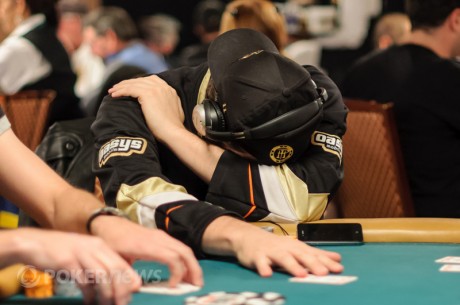The Poker Shrink, Vol. 53: The Just-World Phenomenon

The just-world phenomenon is the psychological tendency for people to believe that the world is just or fair and that people therefore get what they deserve. We all hold this belief to some extent, so when something good happens to you, you might conclude that the world is just because you are a good person. In the same way, when you see something not so good happen to someone else, you may conclude that they did something to bring on their trouble. Otherwise, it would not have occurred, since the world is a just place.
For many years in professional poker, Phil Hellmuth was a prime advocate of the just-world phenomenon; Phil felt and he told you that he deserved to win the hand or the tournament because in a just and fair world the best player should win. Mike Matusow was the poster child for the other side of this story. Mike would tell you how bad he ran and how he never won a coin flip because it was not a just or fair world.
Mike has changed his attitude and now operates on a more positive expectation view of life. Phil, well, Phil is always going to be Phil. The question is: Where do you fall on the fair-world spectrum?
Is poker a fair game? Is the poker table a good or a bad example of the just-world phenomenon? Should you even consider fairness when playing poker?
First of all, poker may be an absolutely perfect model for a fair-world view of life. We all know the best starting hand in hold'em is pocket aces. We also know the worst starting hand is deuce-seven off-suit. We know that, right? Then we also should know that in a heads-up hand between the worst and the best starting hands, with all of the chips in pre-flop, the pocket aces will win approximately 88% of the time. In a just-world scenario, the big hand wins, but in the real world, not a different evil, bizzaro version of reality but in the same just-world/real world, the seven-deuce off-suit wins the hand 12% of the time.
You know that right? So when you win 88% of the time and lose 12% of the time, how is it that you are so upset 12% of the time and not equally and oppositely happy the other 88% of the time?
Fair is fair. You are not a good person for winning when you get your cards in right; nor, are you an evil, worthless lout when your big hands lose to merciless suckouts. The problem arises when our game suffers when the fair-world model evens out and we do take some bad beats.
If all of life were as easy as the percentages and poker odds that arise from a 52-card deck, then we would all be cruising along in a just world. But the world is not quite so easy to predict as a poker game. Which begs the question, if poker does indeed come down to math and predictability, then why do players get so upset, and why do they tilt after a bad-percentage river card?
The answer is simple. We do think the world is just, we do know that things even out over time. We do know we are actually winning 88% of the time. But we tend, because we are human, to focus on one hand or one tournament or one cash game session, and that is not a "world" view. The percentages that affect the big world take place over time, a time a lot longer than one hand of poker.
So for your own sanity, for your own mental health and for your blood pressure, remember: It actually is a just world, at least at the poker table, which does not mean that two pairs, deuces and sevens, will not beat your pocket aces… sometimes.
Get in on the action with a Poker Stars marketing code - In addition to being the source for all things poker, PokerNews delivers the best bonus codes and marketing codes available on the internet.








